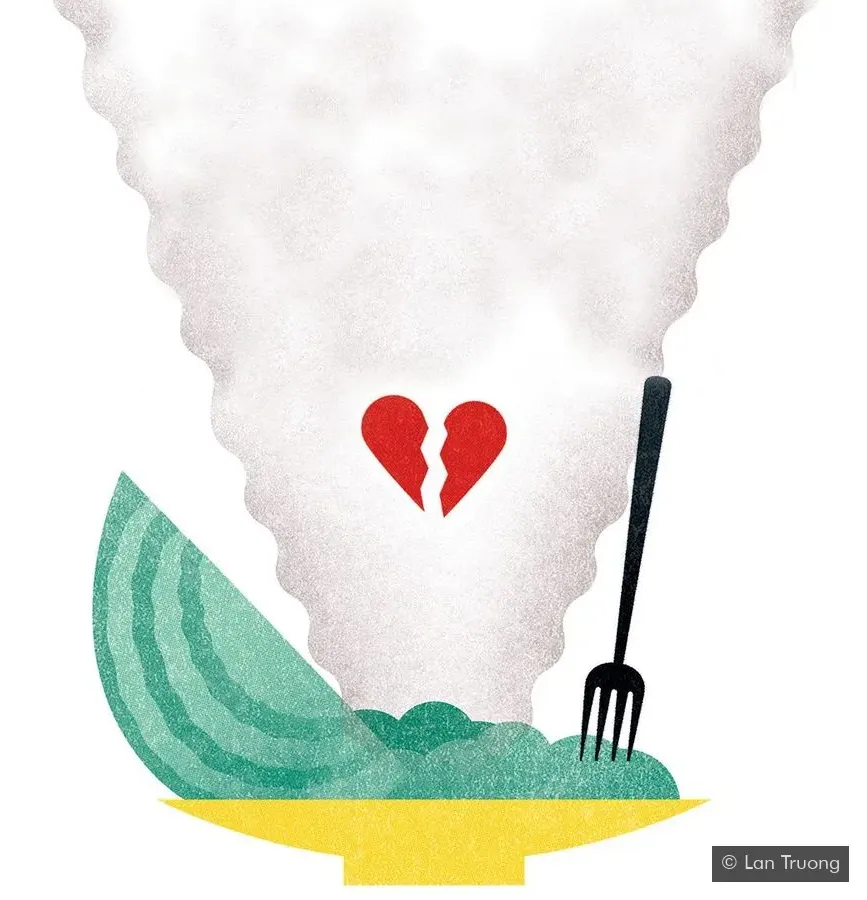Hello peeps! @ailindigo here!
This time for the 4th edition of Untranslatable Words we're going to Europe! This week word is, one more time, not a word but a phrase, a very interesting one that comes from, in my opinion, a foodie country.
The italian phrase: Cavoli riscaldati.

Gif by Wordstuck
Cavoli riscaldati
It's funny because this has been happening to me lately, two lovers from the past has been trying to cavoli riscaldati me this last week. Something very uncomfortable when you know there's no coming back and you're certain it would be a total disaster.
Cavoli riscaldati is an italian term which literally translates as "reheated cabbage", and is used to describe the attempt to restart a failed relationship. Which will be undoubtedly messy & completely unworkable. *
It's pretty funny that italians chose this phrase, which acts a a verb, to describe such sort of action, but I do think it tells a lot about their culture, on how close they feel to their food to the point that they even use it to name not related actions. Though, the analogy is there and it's visible.
Some expressions can offer unique insight to their own culture, and I think this might be one of those cases. This is something Christopher Moore explains in his book In Other Words, where he collected 93 of his favourite expressions from more than 35 tongues.
According to Moore, “this Italian phrase describes a pointless attempt to revive a former love affair, and comes from a proverb: cavoli riscaldati né amore ritornato non fu mai buono – ‘neither reheated cabbage nor revived love is ever any good’.” *
 Illustration by Lan Truong
Illustration by Lan TruongItalians believe this concept is similar to reheated cabbage because it is never going to be the same as just-cooked cabbage, meaning that reheating cabbage is an unworkable try to imitate the taste of just-cooked cabbage, having as a result a messy and distasteful food.
The term also seems to go beyond the relationships/love issue, it doesn't strictly refers to that but also has a more general meaning. The phrase can also refer to "something old that someone tries to pass off as novel/new", it can allude to the fact that if something didn't work out/wasn't that good the first time, it will hardly be better on a second attempt, just as "reheated cabbage" is never going to be as good as just-cooked cabbage. *
This phrase is related to the proverbs "serva ripresa (o prete spretato) e cavoli riscaldato non fu mai buona (buono)" – "The rebuke of the servants and the heated cabbage was never good" and "i cavoli riscaldati furono buoni ma non lodati" – "The heated cabbages were good but not praised.", which are said when you repeat a successful test badly the first time and that you have little hope in the second. *
I think the fact they refer to these life issues through food tells how important is the culinary aspect of life for them, it's not only funny but interesting indeed. Italian cuisine is know to be one of the most popular and copied in the world, and cabbage is one of its frequently used ingredientes for dishes, since Middle Ages. *
What do you think? Have any of your past lovers tried to cavoli riscaldati you? Do you think second tries are worth it even if they're not as good as the first one? Or do you think reheated food can be as good as the freshly prepared ones? Are you a cavoli riscaldati type of person? Please feel free to let me know what you think in the comments!
Thank you very much for passing by! :)
Previous Untranslatable Words:
#1: Torschlusspanik
#2: Mono no aware
#3: Rasāsvāda
This content is part of a new series to get more people interested on languages and how they, perception and culture are related!
Exclusively for the Hive Cross Culture Community, the community for language exchange or cross-cultural purposes.
If you'd like to be part of the discussion don't hesitate to hop into the Hive Language and Culture Exchange Discord server! As well as subscribing to the Hive Cross Culture Community so you don't miss any new word comming ;) We'll be sharing a new Untranslatable Word each week!

